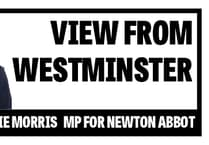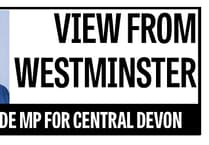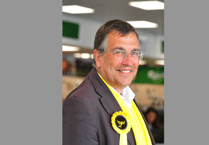THE claims made by Teignbridge District Council against Councillor Richard Daws have drawn the wrong kind of attention to our constituency but the scandal does also serve as a reminder were it needed that elections, such as in May 2023, and criteria by which we should be judging our representatives, matter greatly, writes Dr Jeffrey Pocock, Newton Abbot Constituency Labour Party vice-chairman and media officer.
Councillor Daws, elected to TDC in 2019, opposes a planned £360m housing development at Wolborough Barton.
He was later censured for breaching TDC’s code of conduct, after a supposed complaint about his behaviour during a planning debate, a complaint evidence of which it later transpired could not be produced.
The Local Government and Social Care Ombudsman ruled in its report (TDC, 21 004 645) not only that an investigation into Daws was instigated without a complaint being lodged, but more seriously that in doing so TDC caused him an injustice.
TDC were unable to explain the procedure by which Daws was censured. The Council have also been ticked off for not taking into consideration the right of Councillor Daws to enhanced free speech.
Among various remedies, the Ombudsman asked for a public apology and a link on TDC’s website to the Ombudsman’s report.
To compound matters, however, it would appear that initially at least TDC sought to oppose the findings of the Ombudsman’s report, and it also suggested that any TDC apology has been “half-hearted” at best.
This and events at the extraordinary meeting held to consider the Ombudsman’s report have in turn led to the resignation of at least one member of TDC’s own standards board.
Housing developments are incredibly controversial, especially in our part of Devon where they seem to be appearing at an ever-quickening rate. However, given the elections coming up later this year, one important question is also how we should view the whole Daws fiasco.
This is not a straightforward question. But, if nothing else, the Daws affair reminds us that local as well as national governments must as a priority be judged on how well they listen to the people they represent.
Similarly, governments, local or not, must not make it harder for people to be heard, by denying them the freedom to speak, or as the Tories nationally are now doing by making it harder for people to vote or to withdraw labour.
Our political representatives must also be able to compromise, recognise when they make mistakes, and negotiate with others as equals. Our representatives must in short do their utmost to unite people.
This is why our May 2023 election candidates stand ready and eager to listen to and to work with others from across the political spectrum.
For they know that unity not division is how we will repair our local governance and our country. And this way they know local people will get the politics and policies they deserve.




